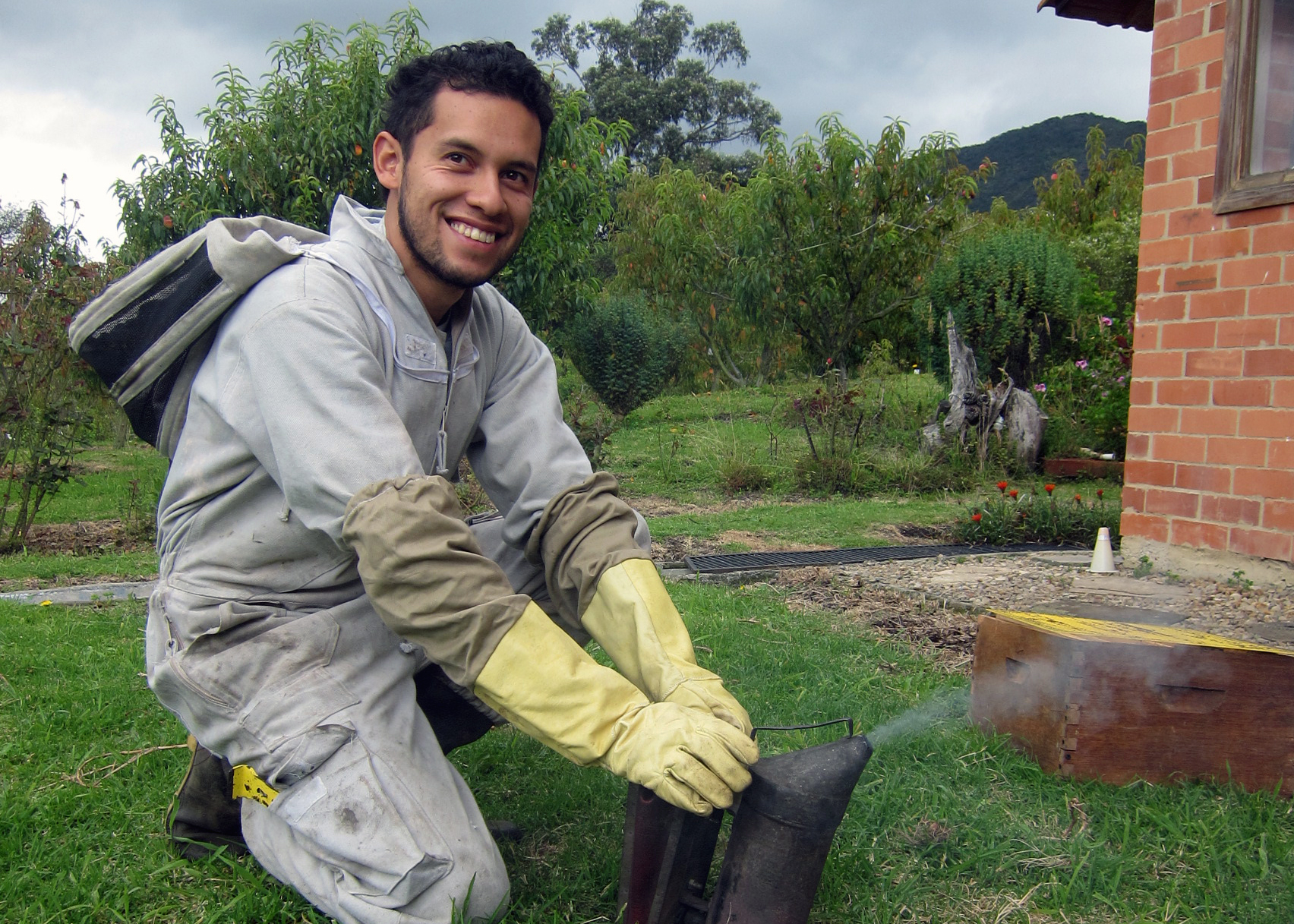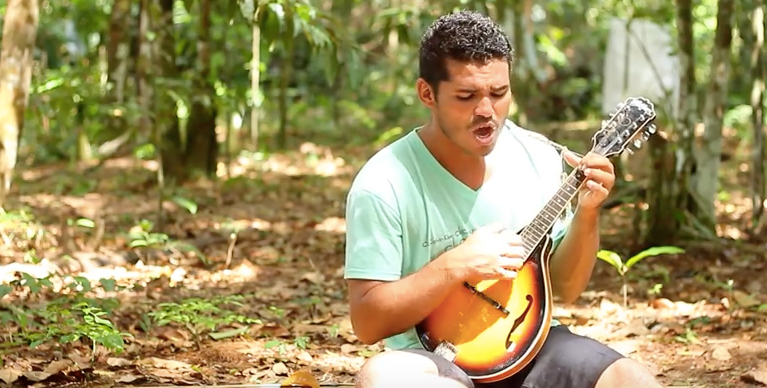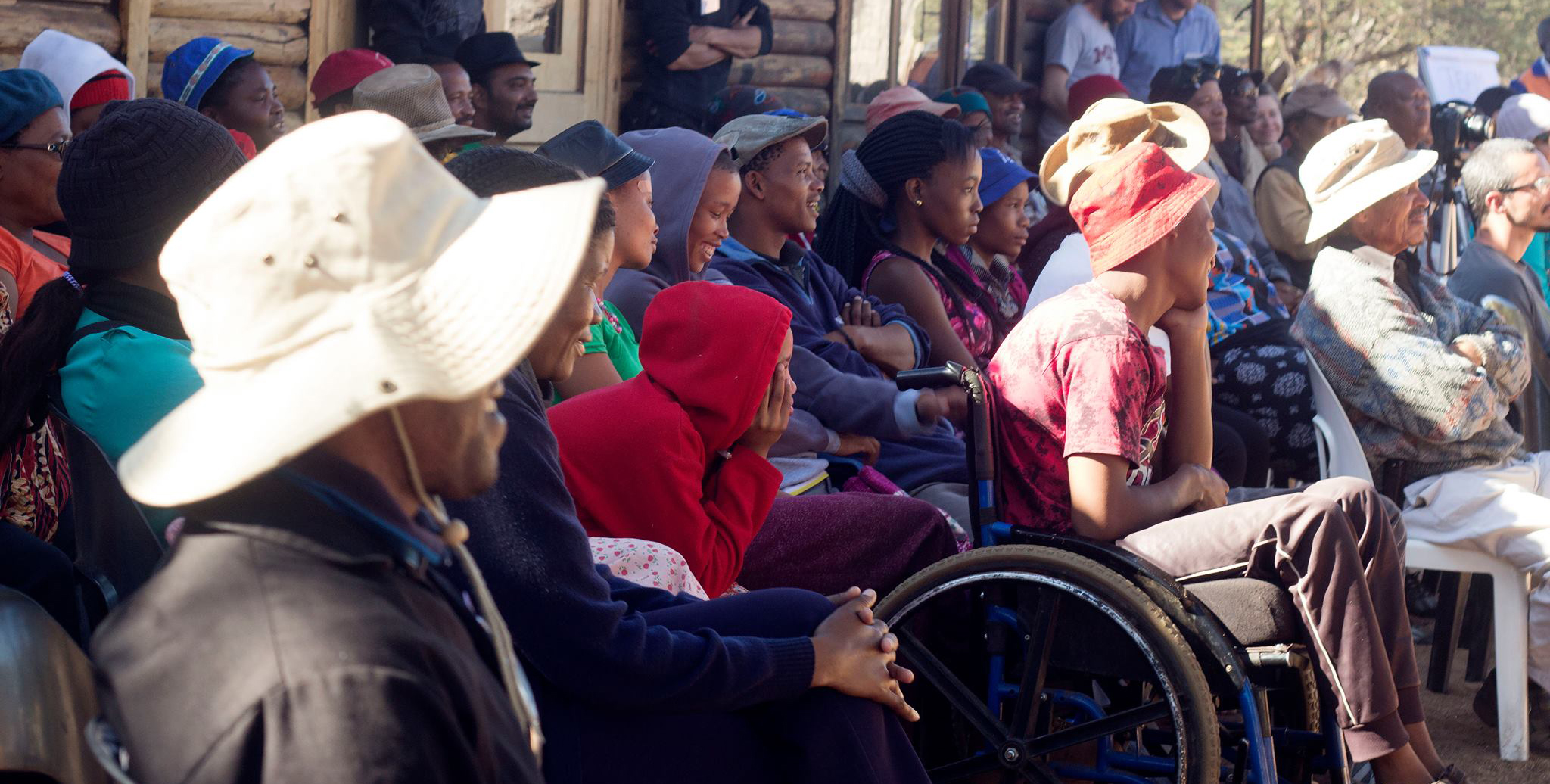Meet David Saleh: Designer, Beekeeper & Entrepreneur

For decades, Colombia’s global image has suffered; the country is often associated with images of war, unrest, and narcotics trade.
It’s one of many reasons David Saleh is eager for the International Development Design Summit (IDDS) planned in Cali, Colombia next summer. As David sees it, IDDS will not only empower local innovators, but also start to change the perception of Colombia as a whole.
“This is a big opportunity to show people that Colombia has many, many things to offer the world,” said David, an IDIN Network member, beekeeper, and entrepreneur. “The most important thing that [Colombia] has to offer is its people. The power of those people to create innovations.”
Historically, IDDS is a month-long hands-on design experience where diverse participants work closely with local community members to address development challenges through the development of working prototypes. Recently, IDIN has introduced shorter themed design summits like the upcoming IDDS Zero Waste in Cali, Colombia, which will take place from June 14-29.
David, who first participated in IDDS Zambia as a member of the waste team in 2013, is particularly excited about the summit’s theme: waste management. In Zambia, David’s team designed an efficient and affordable stove to generate heat from solid waste materials, including a dryer component which acts as storage for excess heat and can be used to dry vegetables and keep food warm.

Waste management is important to David who grew up in Bogota where there are enormous challenges in waste management. About 400,000 tons of solid waste are generated in Latin America each day, and most of it winds up in landfills. Innovators like David are not only thinking about how the waste can be managed, but also how it can be put to good use.
David works closely with small farmers in Colombia as a part of his role as a beekeeping researcher and says he finds farmers often don’t practice waste management as they could or should.
“Farmers don’t use the manure from their livestock for composting for planting. They don’t connect the cycles in the [environmental] system. We live at a very high altitude, so it’s important to focus on waste management as a part of the environment.”
But farmers are just one of many groups who have a part to play in waste management. The organizers of IDDS Zero Waste recognize this, and hope to attract local and international participants alike, including waste pickers, waste management experts, designers, health workers, municipal workers, and more.
It’s one of the ideas at the core of the IDDS experience: that innovation thrives when diverse groups of people work together to make an impact.
Beekeeping in Colombia
David first became interested in beekeeping as an animal science student at the National University of Colombia.
Ever the entrepreneur, David saw an opportunity to start a new business with his friends. Classes made it difficult to hold a job with regular hours, so he and his friends created their own. They did their research, bought some hives, and began to experiment with commercializing beekeeping products such as honey and pollen.
“Anyone can be a beekeeper,” David says. “You don’t need special skills, just a special connection with the bees.”
David took his work one step further by beginning work with AYNI, a research group at the National University of Colombia dedicated to improving beekeeping practices, especially drying bee pollen.
“[At AYNI,] we work to understand and improve the drying conditions for bee pollen in Colombia in order to propose new technologies or management in the product to improve the quality of the product.”
In 2011, David’s work with AYNI took him to Argentina where he presented his research at an international summit and spent a few months working with and learning from small beekeepers in the area.
David discovered some of the major challenges beekeepers in Argentina faced were similar to what beekeepers in Colombia faced: getting a fair value for their product and optimizing their production process.
Upon returning to Colombia, David used what he had learned to start a beekeeping business of his own called Productos Apicolas de Colombia, or Proapicol for short.
Proapicol helps connect small beekeepers’ associations to the markets they are trying to reach and helps educate consumers about the benefits of honey and pollen. Colombians often consume honey when they are sick.
Solar Dryer Work
After IDDS in Zambia, David continued dryer-related work. As an IDIN Network member, he has received two IDIN microgrants to design, develop, and iterate a bee pollen solar dryer in Colombia where bee pollen is often added to food as a micronutrient supplement.
Most recently, David’s work on solar dryers brought him to MIT D-Lab to work closely with a student team advancing solar dryer prototypes as a part of the D-Lab: Development class. The team will travel with David to Arusha, Tanzania this January to follow up on work started by IDDS participants last summer.
Those participants worked closely with avocado farmers in rural Leguruki and discovered that excess avocado crops often go to waste in the region. The team designed several avocado oil press prototypes based on the idea that avocado oil would be a valuable product for use and sale by small-scale farmers. Despite success with the oil press prototypes, the team and local farmers had trouble finding an effective process for drying avocados, a necessary first step in creating extracting avocado oil.
David and the students used lessons learned during IDDS in Arusha and experiments run in D-Lab’s workshop to build a new solar dryer prototype. They’ve worked through the fall to optimize airflow, temperature, time to dry, and efficiency. Although there are several high-tech solar dryer technologies on the market here in the US, it’s key that the model David and the students bring to Arusha is low-cost and made of locally accessible materials.
“One of the best parts about coming here to work with students at MIT is that I learn from the students, and they can learn from me,” David explains. “All of us learn together from this process.”
He also adds that the drying processes from avocado and bee pollen are strikingly similar, meaning the avocado drying learning process is contributing to his work back at home.
Beyond work in Tanzania, David continues to think about new solar dryer designs that will optimize bee pollen processing, including versions that small-scale farmers can make themselves and a model more appropriate for commercial producers.
He’s also working closely with IDIN academic partner University of California, Davis students and faculty to think through a version of a solar dryer that could be built into the bottom of a beehive. This design will support another prototype previously constructed by AYNI, the research group David is a part of.
“It might be a crazy idea,” David says, smiling, “But we’re going to try something different.”







